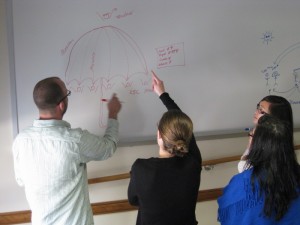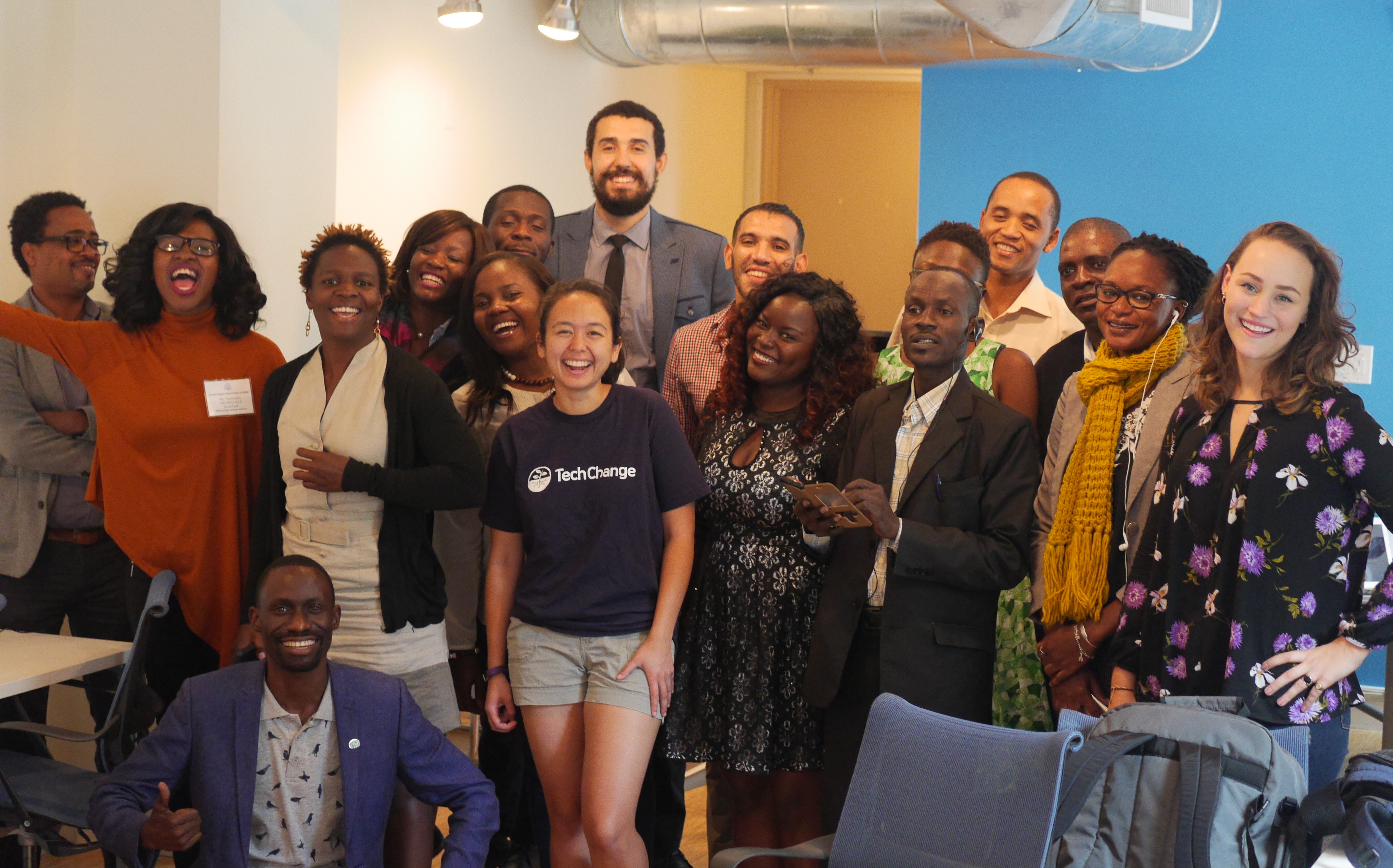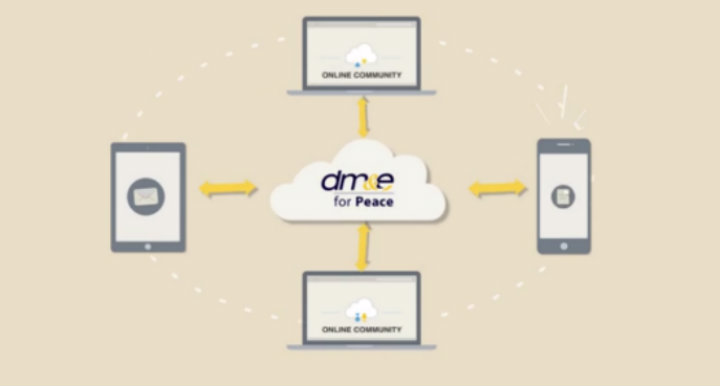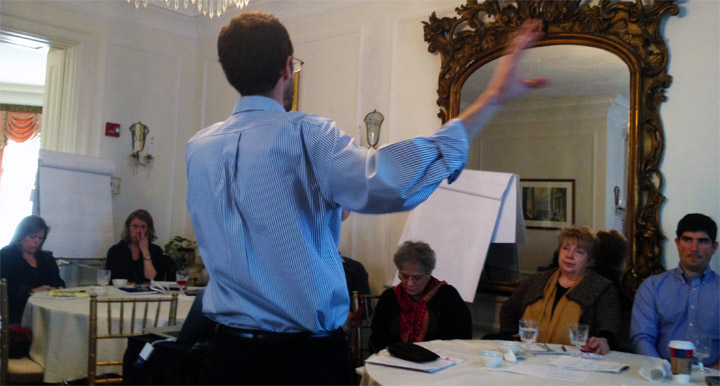When an innovator is struck with a new idea for a technology, his or her first thought isn’t naturally “How can this be used for a humanitarian, development, or peace-building cause?”. Rather, it is more often “How can I sell millions of copies of this in the Apple App Store?” or “How soon will I be able to sell this to a venture capitalist and use the money to buy my I Am Rich app“.
This past Thursday, TechChange organized a training with FrontlineSMS that not only taught people how to use the software, but forced them to confront this issue of priorities. Against our tendency to think of ways to use the technology to benefit ourselves, we designed our own projects that used FrontlineSMS to enable social change. There was a spark of awareness that lying dormant in our creativity and innovative thinking is the capacity to use technology in a more responsible way.
Led by FrontlineSMS gurus Sean McDonald and Laura Walker Hudson, we were introduced to this powerful and simple technology, which uses a computer, a mobile phone, and SMS text messaging to mass communicate with groups of people. The potential uses for this technology are boundless, as evidenced by FrontlineSMS’s sister projects that reach “specific fields such as health, finance, education, law, and media”. While one organization can use it as mobile healthcare for expectant mothers, another can use it to stabilize markets by providing local fishermen with real time price information. We were presented with numerous case studies all validating the fact that open source technology can help bridge the gap between vulnerable populations and the information and tools they need.
We were then split into groups, given a modem connected to FrontlineSMS, and asked to think of a real world problem to confront. It’s interesting to think that every day we sit in front of a computer or play with our iPhones and all of these technologies have the possibility of answering some sort of global need but it very often doesn’t even cross our minds. It’s not an automatic motive. But at the FrontlineSMS training, we were forced to think of others before self, since that was the assignment.
Thus, we trained a room of FrontlineSMS ninjas – compassionate, philanthropic ninjas. They came up with strategies to connect LGBT populations to service providers and improve parent-teacher relations and in the process learned about the technical and more importantly contextual issues that must be resolved to bring about real change. TechChange is planning to host more tech trainings throughout the year. We want to get creative people armed with emerging technologies and collaborating on the hardest problems facing our generation. And of course, one of the best parts of open source is the social and community aspect – there was a very nerdy happy hour afterwards which I wasn’t legally allowed to attend but I hear it gets pretty wild.
Mariel Bartolome is a Technical Coordinator at TechChange and a computer science major at the University of Maryland College Park.




